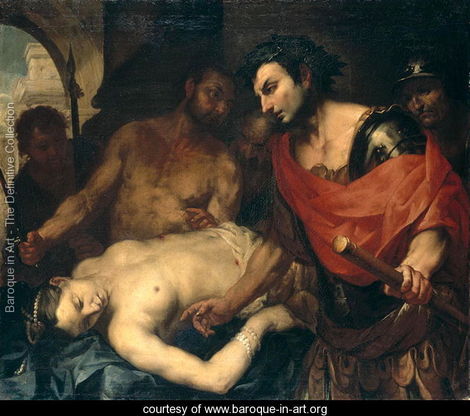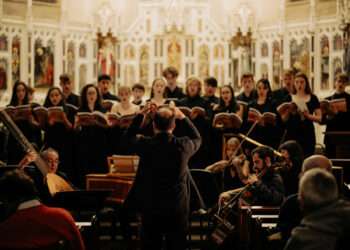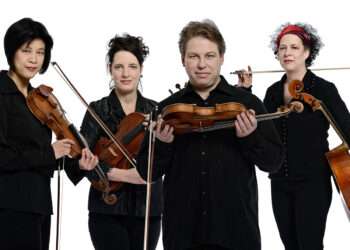Baroque opera has been a surprisingly recent discovery for me. It’s so obviously the sort of thing I would like — there’s an intoxicating mix of passion, bad behaviour, sex, tragedy, strong female characters, lots of semiquavers, and, sometimes, recorders — that I wonder what took me so long. There’s more of it about these days, which helps, but what’s really made a difference for me is the internet; I can listen to performances on Radio 3, watch streamed productions and explore things on Spotify. I’m getting quite a taste for it, but I’ve never seen any live performances, so I was pretty excited when English Touring Opera announced that this autumn they would be doing three Venetian operas, and bringing them to Durham: so excited in fact, that I immediately booked for all three. I’m even missing choir practice – which is pretty much unheard of.
The three works in ETO’s tour are Handel’s Agrippina, Cavalli’s Jason and Monteverdi’s Coronation of Poppea, so for two nights of the three, we’ll be plunged into the sordid intrigues of the Roman Empire. The story of Coronation of Poppea follows on from Agrippina; together they cover Nero’s rise to power with the help of his mother, Agrippina, and then the scheming of Poppea to become Nero’s wife. Handel’s approach is the lighter of the two; Agrippina was one of his first operas and his music is full of high spirits, with a good comic libretto. Things get darker for Monteverdi’s part of the story, but Monteverdi’s musical language, itself so sensuous, lends itself perfectly to the bad behaviour of the characters. Sandwiched between the Romans comes Jason – a more familiar story, but Cavalli is certainly not a familiar name, and despite the opera having been a huge success in 17th century Venice, it’s not often performed now. I’ve had one listen on Spotify so far, and enjoyed it; it was earthy and spirited, and in musical terms draws a lot on earlier dance styles. And there were recorders. I’m going to listen to all three a few more times before the performances, and will write more about each individual opera.
My only disappointment, whilst reading for this article, was discovering that Poppea is a revival of James Conway’s 2012 production, set in Stalinist Russia. (See Dorothy Wilson’s Bachtrack review). I have nothing against transported opera settings in principle, but I was rather hoping that my first viewings of baroque opera would have productions that reflect the sensuousness of the music. From a personal perspective too, Russia is a whole different part of my life, and so having Soviet Russia mixed with Baroque music may cause awkward mental dissonances. Hopefully I’ll be so swept up in the music that the production doesn’t matter too much.
ETO have made a nice introductory video – it reminded me how much I want to see these operas. They’re in Durham at the Gala Theatre from 4-6 November and there are discounts for booking for two or all three. Full details can also be found via my What’s On page.







